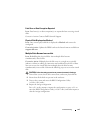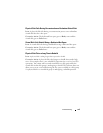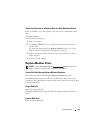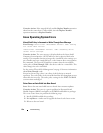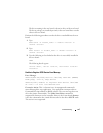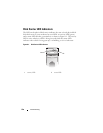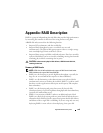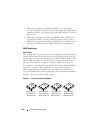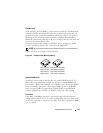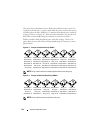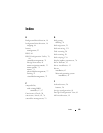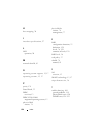
Appendix: RAID Description 129
A
Appendix: RAID Description
RAID is a group of independent physical disks that provides high performance
by increasing the number of disks used for saving and accessing data.
A RAID disk subsystem offers the following benefits:
• Improved I/O performance and data availability.
• Improved data throughput because several disks are accessed
simultaneously. The physical disk group appears either as a single storage
unit or multiple logical units to the host system.
• Improved data storage availability and fault tolerance. Data loss caused by
a physical disk failure can be recovered by rebuilding missing data from the
remaining physical disks containing data or parity.
CAUTION: In the event of a physical disk failure, a RAID 0 virtual disk fails,
resulting in data loss.
Summary of RAID Levels
NOTE: PERC H710, H710P and H810 cards support all RAID levels listed below.
PERC H310 does not support RAID 6 and RAID 60.
• RAID 0 uses disk striping to provide high data throughput, especially for
large files in an environment that requires no data redundancy.
• RAID 1 uses disk mirroring so that data written to one physical disk is
simultaneously written to another physical disk. RAID 1 is good for small
databases or other applications that require small capacity and complete
data redundancy.
• RAID 5 uses disk striping and parity data across all physical disks
(distributed parity) to provide high data throughput and data redundancy,
especially for small random access.
• RAID 6 is an extension of RAID 5 and uses an additional parity block.
RAID 6 uses block-level striping with two parity blocks distributed across
all member disks. RAID 6 provides protection against double disk failures,
and failures while a single disk is rebuilding. If you are using only one array,
deploying RAID 6 is more effective than deploying a hot spare disk.



